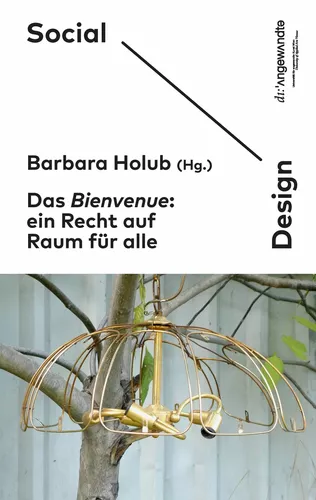Verlag
BoD • Books on Demand GmbH, In de Tarpen 42, 22848 Norderstedt, bod@bod.de
3D-Ansicht des Produktes (beispielhaft auf Grundlage des Einbandes, Verhältnisse und Details variieren)
Paperback


Band 1: Social Design Reader
Gesellschaft, Politik & Medien
Paperback
116 Seiten
ISBN-13: 9783741272455
Verlag: BoD - Books on Demand
Erscheinungsdatum: 29.09.2016
Sprache: Deutsch
erhältlich als:
Du schreibst?
Erfüll dir deinen Traum, schreibe deine Geschichte und mach mit BoD ein Buch daraus!
Mehr Infos
Barbara Holub (Hrsg.)
Barbara Holub is an artist and architect based in Vienna. With Paul Rajakovics she founded transparadiso, a platform for an engaged urbanistic practice, for direct urbanism. Many of her projects and activistic interventions deal with topics of social inequality. During the last years transparadiso has dealt especially with issues of migration and has been working on a „welcome quarter“. This should provide both a conceptual and built infrastructure in order to serve as a model for innovative formats of living together, profiting from diverse cultural impacts.
www.transparadiso.com; www.barbaraholub.com

Social Design Arts as Urban Innovation (Hrsg.)
Cities are our natural world, created by us and yet, in their constantly shifting complexity, almost beyond our grasp. Urbanization processes do not end at the city boundaries. Almost infinite networks, alienated communication, hasty consumption and conflicts of social marginalization or economic injustice determine our urban survival.
Cities form contested spaces, whose present refers back to the past, whose power structures can be identified and also changed. It is important to predict the need for change well in advance but also to be able to react to acute crises great and small with fresh solutions.
Innovations are driven on a bottom-up basis. Not infrequently they arise at the margins of society, where established structures encounter influences from without, traditional responses no longer work, or safeguards apply to some but not to others.
The projects developed in the studio situation of our Social Design program show that societal innovation – meaning extraordinary results and unexpected approaches – becomes possible where different forms of knowledge and methods interact, where artistic acumen combines with creativity from the so-called hard sciences, where design, theory, architecture and the fine arts not only pool their strategies but also enter into confrontations and alliances that can be both risky and productive.
Innovative methods construct new meanings, strengthen responsibility and thus create the preconditions for identification with one’s own actions.
Students who choose the Master’s in Social Design. Arts as Urban Innovation signal their determination to play a critical and active part in influencing society and a refusal to discount the future!
Further information on the study program, syllabus
and relevant events is available on-line at
http://socialdesign.ac.at
BoD • Books on Demand GmbH, In de Tarpen 42, 22848 Norderstedt, bod@bod.de
Paperback

Es sind momentan noch keine Pressestimmen vorhanden.